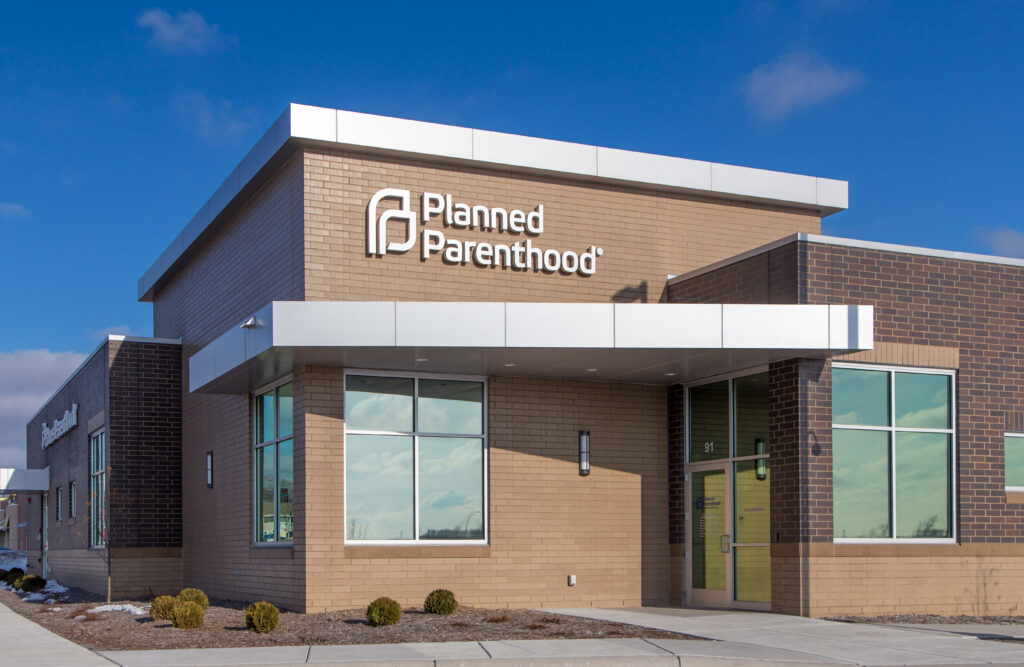Abortion Reporting: Tennessee (2021)
Tennessee’s 2021 abortion statistics have not yet been released on the website of the Tennessee Department of Health, but the state provided abortion totals and some demographic information to the U.S. Centers for Disease Control and Prevention (CDC) for inclusion in the CDC’s 2021 abortion surveillance report. The data analyzed within this report is from the CDC’s 2021 report.
Statistics and Changes in Tennessee Abortions,1 2020-2021

Planned Parenthood’s Tennessee abortion market share is not included in the abortion report.
Abortion Totals and Trends
In 2021, there were 12,182 abortions performed in Tennessee according to the CDC, an increase of 8% from the previous year (Fig. 1). A majority (79%) of abortions performed in Tennessee in 2021 were on state residents, while 21% were performed on non-residents primarily from Alabama, Arkansas, Kentucky, Mississippi, and Virginia. Mississippi women made up the largest percentage of non-resident women who obtained abortions in Tennessee in 2021. There were 7,409 chemical abortions performed in Tennessee, although Tennessee did not report this data for 2020. The Charlotte Lozier Institute (CLI) estimates that Tennessee’s state abortion rate increased from 2020 by 7% to 8.9 abortions per 1,000 women ages 15 to 44 (Fig. 2).2
CDC Summary
The data Tennessee provided to the CDC and that was subsequently published in the CDC’s 2021 report was occurrence data on all abortions that occurred in the state regardless of women’s residence status. Eight percent of the abortions were on girls ages 19 and younger, including 7.8% on girls ages 15 to 19 and 0.2% on girls under the age of 15. Twenty-nine percent were performed on women in their early twenties, and 30% on women in their later twenties. Thirty percent of the abortions were obtained by women in their thirties, and 3% were performed on women in their early forties. Age was not reported for four abortions.
A majority of abortions that occurred in Tennessee were performed on non-Hispanic black women (53%), while 34% were on non-Hispanic white women and 3% on non-Hispanic women of other races. Seven percent were performed on Hispanic women and 2% on women of unknown races. CLI estimates that Tennessee’s black abortion rate was 25.1, six times the white abortion rate of 4.4.
Eighty-five percent of the abortions were performed on unmarried women. A little over 12% were on married women, and 2% were on women of unknown marital status. A majority of the women undergoing abortions in Tennessee (64%) reported no prior abortions, while 24% of the abortions were performed on women with one previous abortion, and 13% on women with two or more prior abortions. The number of previous abortions, if any, was not reported for two women. Thirty-four percent of the abortions were performed on women who reported no prior live births, while 26% were performed on women with one prior live birth. Forty percent of the abortions that occurred in Tennessee were performed on women with two or more prior live births, and five abortions were performed on women whose number of prior live births was unknown.
Thirty-one percent of Tennessee abortions occurred at six weeks of gestation or earlier while 44% occurred between seven and nine weeks of gestation. Nineteen percent of the abortions were performed between 10 and 13 weeks of gestation, dropping to 3% between 14 and 15 weeks. Two percent occurred between 16 and 17 weeks of gestation, while 1% occurred between 18 and 20 weeks. Nine abortions were performed at 21 weeks of gestation or later, and one abortion was performed at an unknown gestational age.
In 2021, 39% of abortions performed in Tennessee were surgical, while 61% were chemical. No intrauterine instillation abortions were performed, while the number of hysterectomy/hysterotomy procedures was suppressed. Eight abortions were performed using unknown methods.
Legislative Changes in Tennessee
As discussed in CLI’s analysis of Tennessee’s 2020 abortion data, following the overturn of Roe v. Wade in June 2022, abortion became prohibited in Tennessee except in cases where the mother’s life or physical health is endangered by her pregnancy. Because of the enforcement of the state’s life-at-conception law following the Dobbs decision, Tennessee’s abortion centers either shut down or moved out of state. A center in Bristol, TN moved a mile away, across the state line, to Bristol, VA where abortion is legal through the second trimester. Similarly, a Memphis-based clinic moved three hours away to Carbondale, Illinois where it opened by providing chemical abortions only, but with plans to provide surgical abortions in the future. Abortion is technically legal in Illinois until viability, but is widely available after viability because of the vague ‘exceptions’ language within the state’s law.
State Ranking
In 2016, CLI ranked abortion reporting across the 50 states, the District of Columbia, and New York City, and Tennessee tied for 33rd best. To improve its reporting, Tennessee could report its data in a timely manner so that the previous year’s data is being released not more than a year later. The state could continue to provide the CDC with data on the types of procedures used. Lastly, Tennessee could also require complication reporting from all medical facilities, including nonhospital facilities.


- The change in total abortions and the abortion rate include 2020 data released by the state and 2021 data provided by the Tennessee DOH to the CDC. Information on the number of chemical abortions performed in Tennessee was not provided in its 2020 abortion report, so while the CDC reported Tennessee’s 2021 chemical abortion total, no change will be calculated as Tennessee has not provided its chemical abortion totals to the CDC in the past.
- National rates were calculated by the Guttmacher Institute. Tennessee rates were calculated by CLI using the following formula: (total number of abortions performed in Tennessee ÷ number of resident women ages 15-44 [based on most recent population estimates]) x 1,000. Rates may differ slightly from previous CLI articles due to revised population estimates. Population estimates were obtained from the CDC WONDER database. Estimates for 2005-2009 are intercensal estimates of the July 1 resident population. Estimates for 2010-2019 are Vintage 2020 postcensal estimates of the July 1 resident population. Estimates for 2020-2021 are Vintage 2021 postcensal estimates of the July 1 resident population. Estimates were produced by the U.S. Census Bureau and the National Center for Health Statistics.
- Tennessee total abortion and resident values for 2005-2020 are from the state’s reports, but the state’s total abortion and resident values for 2021 is from the CDC’s 2021 annual abortion surveillance report.



























